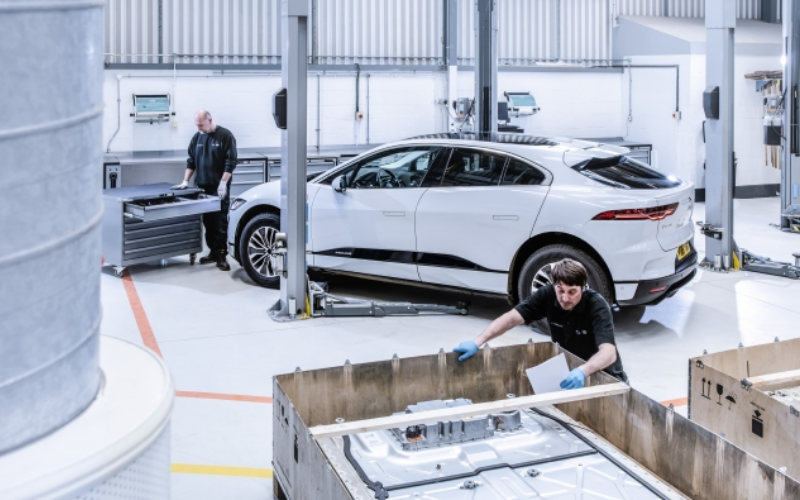Jaguar Land Rover Trials Innovative Plastic Recycling Technology

JLR are now researching new and intelligent ways to recycle their waste plastic – their latest process converts it into a new premium grade material that could feature on future vehicles.
It’s estimated that the amount of waste plastic across the globe will exceed 12 million tonnes, by 2050.
Currently, not all of this plastic can be recycled for use in the automotive industry – especially in vehicle parts, which are required to meet the highest safety and quality standards.
Working in collaboration with chemical company, BASF, Jaguar Land Rover is now part of a pilot project called ‘ChemCycling’ that upcycles domestic waste plastic, otherwise destined for landfill or incinerators, into a new high-quality material.
The waste plastic is transformed to pyrolysis oil using a thermochemical process.
This secondary raw material is then fed into BASF’s production chain as a replacement for fossil resources; ultimately producing a new premium grade that replicates the high quality and performance of brand-new plastics.
Significantly, it can be tempered and coloured making it the ideal sustainable solution for designing the next-generation dashboards and exterior-surfaces in Jaguar and Land Rover models.
Chris Brown, Jaguar Land Rover’s Senior Sustainability Manager, commented: ‘Plastics are vital to car manufacturing and have proven benefits during their use phase, however, plastic waste remains a major global challenge.
‘Solving this issue requires innovation and joined-up thinking between regulators, manufacturers and suppliers.
‘At Jaguar Land Rover, we are proactively increasing recycled content in our products, removing single-use plastics across our operations and reducing excess waste across the product lifecycle. The collaboration with BASF is just one way in which we are advancing our commitment to operating in a circular economy.’
This is the latest example of Jaguar Land Rover’s commitment to addressing the challenge of waste plastic.
The firm has also collaborated with Kvadrat to offer customers alternative seat options that are both luxurious and sustainable.
The high-quality material, available initially on the Range Rover Velar and Range Rover Evoque, combines a durable wool blend with a technical suedecloth that is made from 53 recycled plastic bottles per vehicle.
Jaguar Land Rover has already reached their overall 2020 target for Zero Waste to Landfill for UK operations.
This includes the removal of 1.3 million metres squared – equal to 187 football pitches – of plastic from its manufacturing lineside and replacing 14 million single use plastic items in business operations.
All-in-all, these efforts are driving towards Jaguar Land Rover’s vision for Destination Zero; a goal to make societies safer and healthier, and the environment cleaner.
If you’re feeling more eco-conscious and would like to learn more about electric and hybrid vehicles here at Farnell JLR, click the link below: